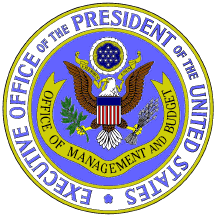Says Capacity Cap Limits, No User Fees Could Spell Veto
 As the aviation world counts down to
the Senate vote on the FAA reauthorization bill, there's a renewed
veto threat on the legislation from the White House.
As the aviation world counts down to
the Senate vote on the FAA reauthorization bill, there's a renewed
veto threat on the legislation from the White House.
On Tuesday, the Office of Management and Budget said the Bush
administration would refuse any FAA funding plan that included
limits governing the Department of Transportation's ability to
impose caps on traffic at congested airports like LaGuardia,
Philadelphia and Newark... and that doesn't include language
hinting at a future move towards user fees.
As ANN reported, in January
DOT moved to allow individual airports to charge higher landing
fees during busier times. DOT Secretary Mary E. Peters said the new
policy, once implemented, would allow airports to curb delays
through imposing fees on airlines landing at airports at peak times
-- a practice that, in theory anyway, should result in flights
being spread out throughout the day.
Not surprisingly, that plan is opposed by the Air Transport
Association, lobbying group for the nation's biggest airlines. But
the plan has drawn the ire of the Aircraft
Owners and Pilots Association, as well... which fears
it would be slippery slope from higher charges for air carriers, to
imposing similar charges on general aviation traffic.
Several lawmakers are also against congestion pricing, saying it
would reduce the amount of choice available to consumers... but in
a Statement of Administrative Policy issued Tuesday, OMB says any
language in the FAA reauthorization bill to curb such congestion
pricing would spell an end to the funding plan, period.
"The Administration strongly opposes any attempt to limit the
Department of Transportation’s legal authority to manage
aviation congestion at the Nation’s most crowded airports,"
OMB writes. "Restricting the Department’s authority would
hurt passengers by locking-in the large and growing congestion and
delay problems. It would also limit the Department’s ability
to protect competition, which in turn helps promote quality
passenger service and lower fares."
OMB adds any attempt "to delay or otherwise suspend
implementation of" a controversial New York-New Jersey-Philadelphia
airspace redesign plan, meant to bring greater efficiency to
routing flights into and out of area airports, would also mean
defeat of the funding plan at the hands of the president.
Most ominously for general aviation, however, OMB also
reiterated the administration's support of broad user fees for all
users of the nation's air traffic control system. Both the House
version of the FAA funding bill -- approved last September -- and
the Senate plan currently under consideration include hikes in fuel
taxes to cover the costs of implementing the FAA's touted "NextGen"
air traffic control system.
The bills do not include additional user fees, however, for such
matters as filing flight plans, or certifying pilots and aircraft.
The White House wants those fees, to curb what it calls "the
current inequitable tax system" it says "could shift aviation costs
away from the system’s users and onto the shoulders of
taxpayers.
"The proposed substitute does not include much-needed aviation
financing reforms to more efficiently and effectively spend
taxpayer money on air traffic control services," the OMB writes,
under the heading 'Perpetuation of Inefficient Funding
Mechanisms.'
"The Administration appreciates that the bill takes some steps
in moving the contribution from business jets towards a level that
is more reflective of those aviation users’ fair share of the
costs," OMB adds. "However, given that the bill does not include
any of the other necessary cost-based financing reforms for air
traffic services or cost-based registration and certification
services, the fuel tax increases alone reflect an unsound financing
policy. These tax increases are designed to facilitate increased
spending above proposed levels and are would be part of a system
that, at bottom, does not reflect true system costs."

The Senate could being debate on its FAA funding bill as soon as
Wednesday afternoon... with a vote coming by the end of the week.
If approved, the Senate plan would need to be reconciled with the
House version of the bill, before heading to the president's desk
for approval or rejection.
 Aero-News: Quote of the Day (04.28.25)
Aero-News: Quote of the Day (04.28.25) ANN's Daily Aero-Term (04.28.25): Decision Altitude (DA)
ANN's Daily Aero-Term (04.28.25): Decision Altitude (DA) ANN's Daily Aero-Linx (04.28.25)
ANN's Daily Aero-Linx (04.28.25) Airborne-Flight Training 04.24.25: GA Refocused, Seminole/Epic, WestJet v TFWP
Airborne-Flight Training 04.24.25: GA Refocused, Seminole/Epic, WestJet v TFWP Aero-News: Quote of the Day (04.29.25)
Aero-News: Quote of the Day (04.29.25)




